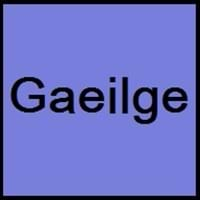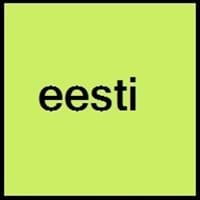Irish and Estonian
Countries
European Union, Ireland
Estonia, European Union
National Language
Ireland
Estonia, Gambia
Second Language
Ireland
Not spoken in any of the countries
Speaking Continents
Europe
Europe
Minority Language
United Kingdom
Denmark, Russia, Sweden
Regulated By
Foras na Gaeilge
Institute of the Estonian Language
Interesting Facts
- In Irish language, there are no exact words for "yes" or "no".
- There are different set of numbers for counting humans and another set for counting non-humans in Irish Language.
- Estonian language is considered to be powerful symbol of Estonian identity and culture.
- Estonian language has adopted many words with Finnish language.
Similar To
Not Available
Finnish
Derived From
Not Available
Not Available
Alphabets in
Irish-Alphabets.jpg#200
Estonian-Alphabets.jpg#200
Writing Direction
Left-To-Right, Horizontal
Left-To-Right, Horizontal
Thank You
Go raibh maith agat
aitäh
How Are You?
Conas atá tú ?
kuidas sul läheb
Good Night
Oíche mhaith
Head ööd
Good Evening
Tráthnóna maith duit
Tere õhtust
Good Afternoon
Tráthnóna maith duit
Tere päevast
Good Morning
Dia dhuit ar maidin
Tere hommikust
Sorry
Tá brón orm
Vabandust
I Love You
Is breá liom thú
ma armastan sind
Excuse Me
Gabh mo leithscéal
Vabandage
Dialect 1
Connacht Irish
Keskmurre
Where They Speak
Connacht
Gabon, Northeastern coast of Estonia
Dialect 2
Munster Irish
Tartu
Where They Speak
Munster
Georgia, South Estonia
Dialect 3
Ulster Irish
Idamurre
Where They Speak
Ulster
France, Northwestern shore of Lake Peipsi.
Speaking Population
Not Available
Not Available
Second Language Speakers
Not Available
Native Name
Gaeilge (na hÉireann) / An Ghaeilge
eesti keel
Alternative Names
Erse, Gaeilge, Gaelic Irish
Eesti keel
French Name
irlandais moyen
estonien
German Name
Mittelirisch
Estnisch
Pronunciation
[ˈɡeːlʲɟə]
Not Available
Ethnicity
Irish people
Estonians
Origin
c. 750
13th century
Language Family
Indo-European Family
Uralic Family
Subgroup
Celtic
Finno-Ugric
Early Forms
Primitive Irish, Old Irish, Middle Irish, Classical Irish, Irish
No early forms
Standard Forms
An Caighdeán Oifigiúil
Estonian
Signed Forms
Irish Sign Language
Estonian Sign Language
Scope
Individual
Macrolanguage
ISO 639 6
Not Available
Not Available
Glottocode
iris1253
esto1258
Linguasphere
50-AAA
No data available
Language Type
Living
Living
Language Linguistic Typology
Verb-Subject-Object
Subject-Verb-Object
Language Morphological Typology
Fusional
Agglutinative
All Irish and Estonian Dialects
Most languages have dialects where each dialect differ from other dialect with respect to grammar and vocabulary. Here you will get to know all Irish and Estonian dialects. Various dialects of Irish and Estonian language differ in their pronunciations and words. Dialects of Irish are spoken in different Irish Speaking Countries whereas Estonian Dialects are spoken in different Estonian speaking countries. Also the number of people speaking Irish vs Estonian Dialects varies from few thousands to many millions. Some of the Irish dialects include: Connacht Irish, Munster Irish. Estonian dialects include: Keskmurre , Tartu. Also learn about dialects in South American Languages and North American Languages.
Irish and Estonian Speaking population
Irish and Estonian speaking population is one of the factors based on which Irish and Estonian languages can be compared. The total count of Irish and Estonian Speaking population in percentage is also given. The percentage of people speaking Irish language is Not Available whereas the percentage of people speaking Estonian language is Not Available. When we compare the speaking population of any two languages we get to know which of two languages is more popular. Find more details about how many people speak Irish and Estonian on Irish vs Estonian where you will get native speakers, speaking population in percentage and native names.
Irish and Estonian Language Codes
Irish and Estonian language codes are used in those applications where using language names are tedious. Irish and Estonian Language Codes include all the international language codes, glottocodes and linguasphere.





